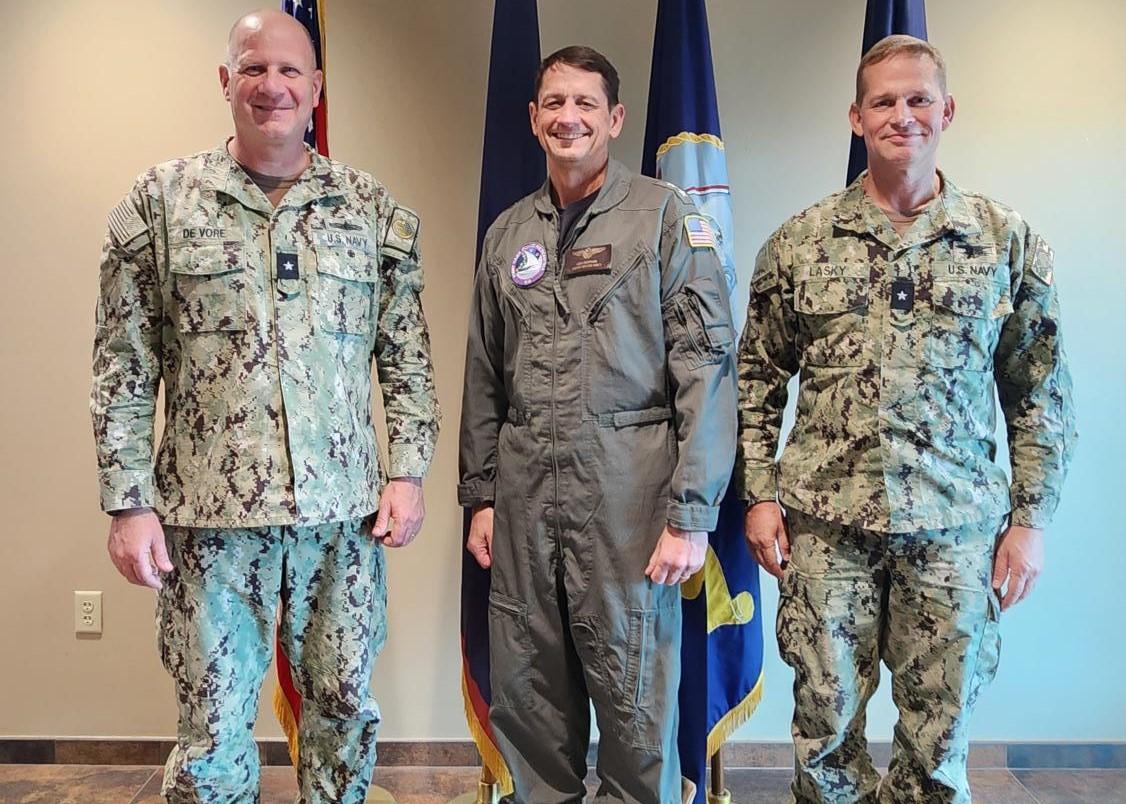Leaders from the Federated States of Micronesia, Marshall Islands, and Palau joined fellow heads of state in Nice, France, for the 3rd United Nations Ocean Conference from June 9–13, 2025, where they voiced a unified Pacific call for stronger ocean protection, climate finance and international cooperation.
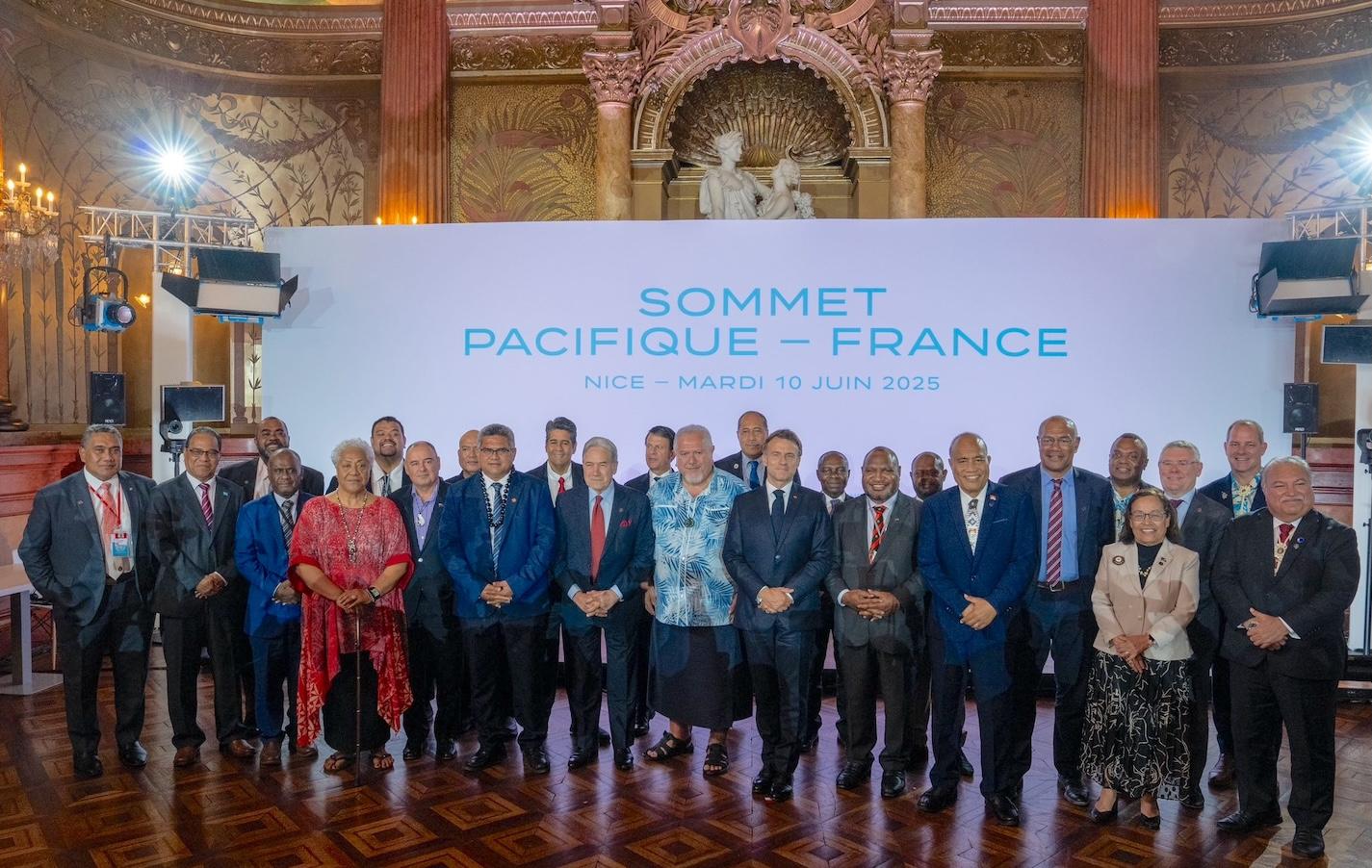
President Surangel S. Whipps Jr. of Palau also was recognized as a global champion for ocean diplomacy and Small Island Developing States during an event hosted by the Blue Planet Alliance and the United Nations Department of Economic and Social Affairs. Speaking as both president of Palau and Chair of the Alliance of Small Island States, Whipps urged world leaders to move from symbolic gestures to concrete action.
“We’ve done our part,” he said, citing Palau’s moves to ban bottom trawling, deep-sea mining, and preserve more than half of its exclusive economic zone as a marine sanctuary. “But leadership without partnership is not enough.”
Whipps also met Prince Albert II of Monaco at the Blue Economy & Finance Forum held prior to UNOC. He later met French President Emmanuel Macron for a bilateral meeting. Both leaders reaffirmed their commitment to halting deep-sea mining. Whipps noted that Palau has already implemented a ban and is actively advocating for a global moratorium. “The ocean belongs to all of us,” he said, emphasizing the importance of international solidarity.
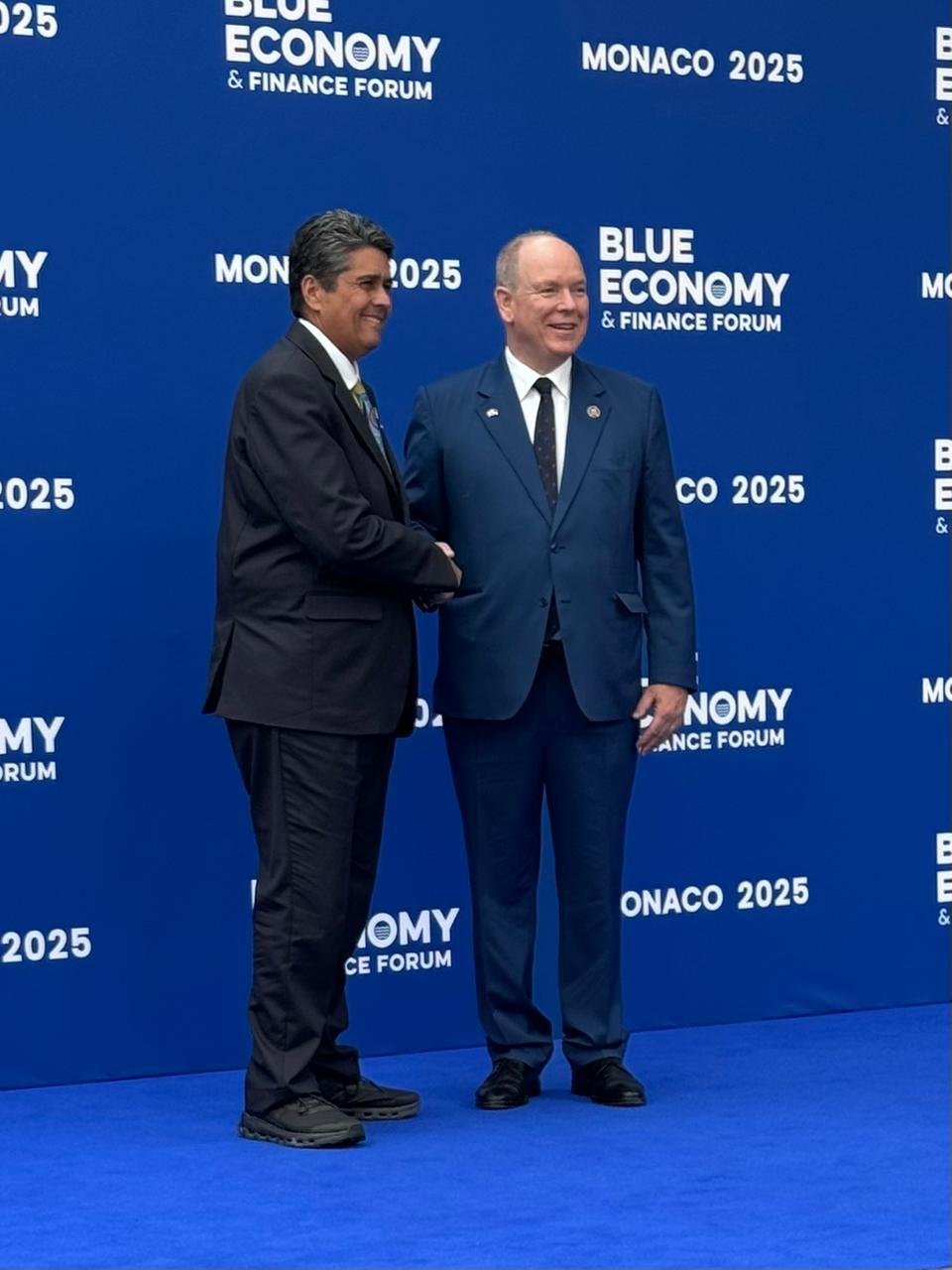
Marshall Islands President Hilda C. Heine delivered strong messages during both the France-Pacific Summit and a bilateral meeting with President Macron. She called climate change “the single greatest security threat” to her nation and urged the international community — particularly developed countries and the European Union — to phase out fossil fuel subsidies and deliver a just energy transition.
During her meeting with Macron, Heine welcomed France’s support for the Pacific Resilience Facility but pressed for more ambition, calling for a 95% domestic emissions reduction in the EU by 2040. She also aligned RMI with regional calls for a moratorium on deep-sea mining, citing the need to protect ocean health for future generations.
Heine also highlighted nuclear contamination and sea-level rise as persistent threats to Pacific security and sovereignty, urging that these issues be treated with the same urgency as other global crises.
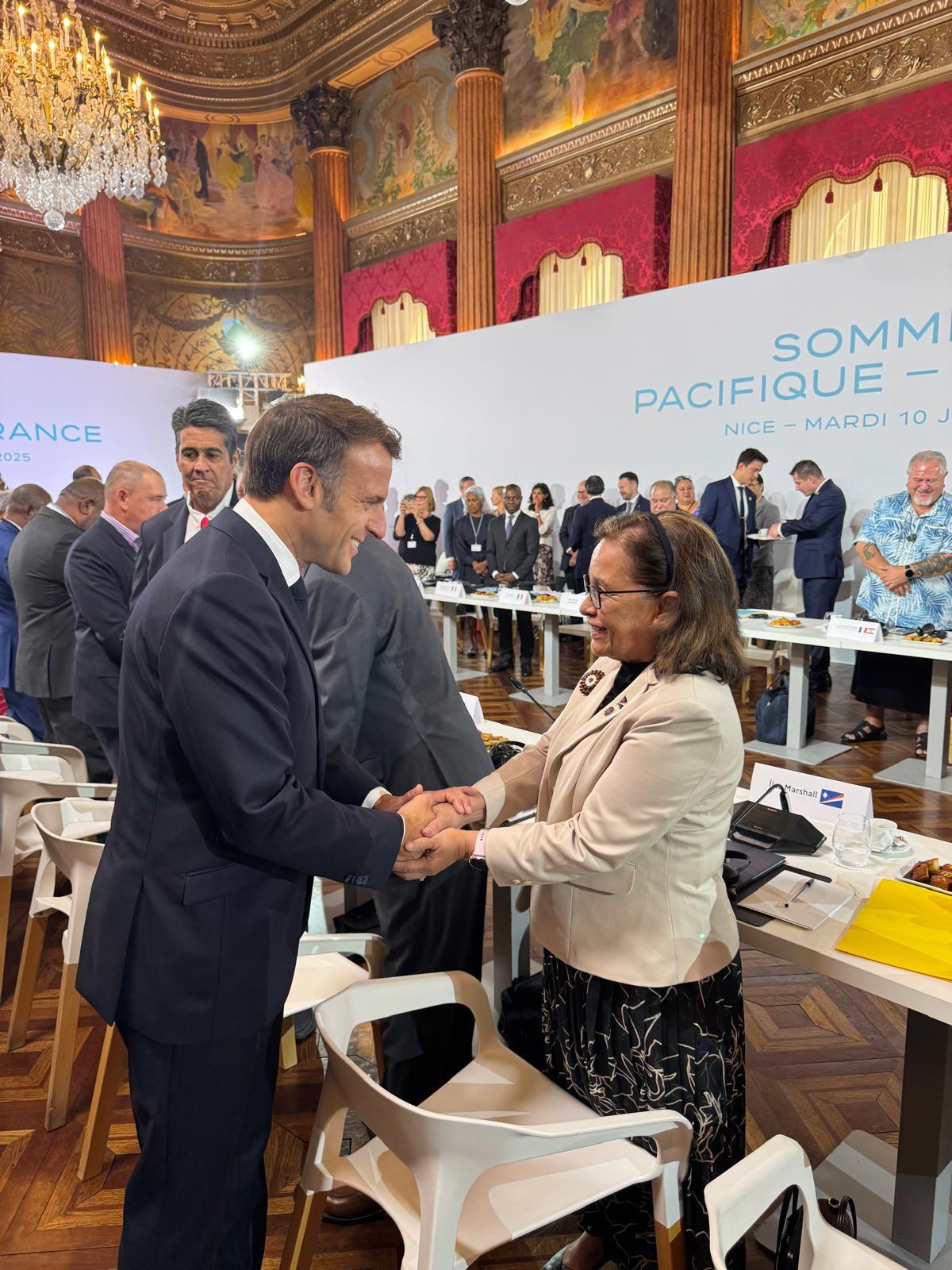
Presidents Heine and Wesley W. Simina of the FSM signed an amendment to their bilateral maritime boundary treaty during UNOC3. The revised agreement ensures that maritime boundaries between the two nations remain fixed and permanent, even as rising sea levels reshape global coastlines.
“This is more than a legal safeguard,” Heine said. “It is a declaration of permanence — of identity, rights, and responsibility in the face of climate change.”
Simina said the treaty reaffirms the strength of the FSM–RMI relationship and their shared commitment to legal certainty and maritime stewardship.
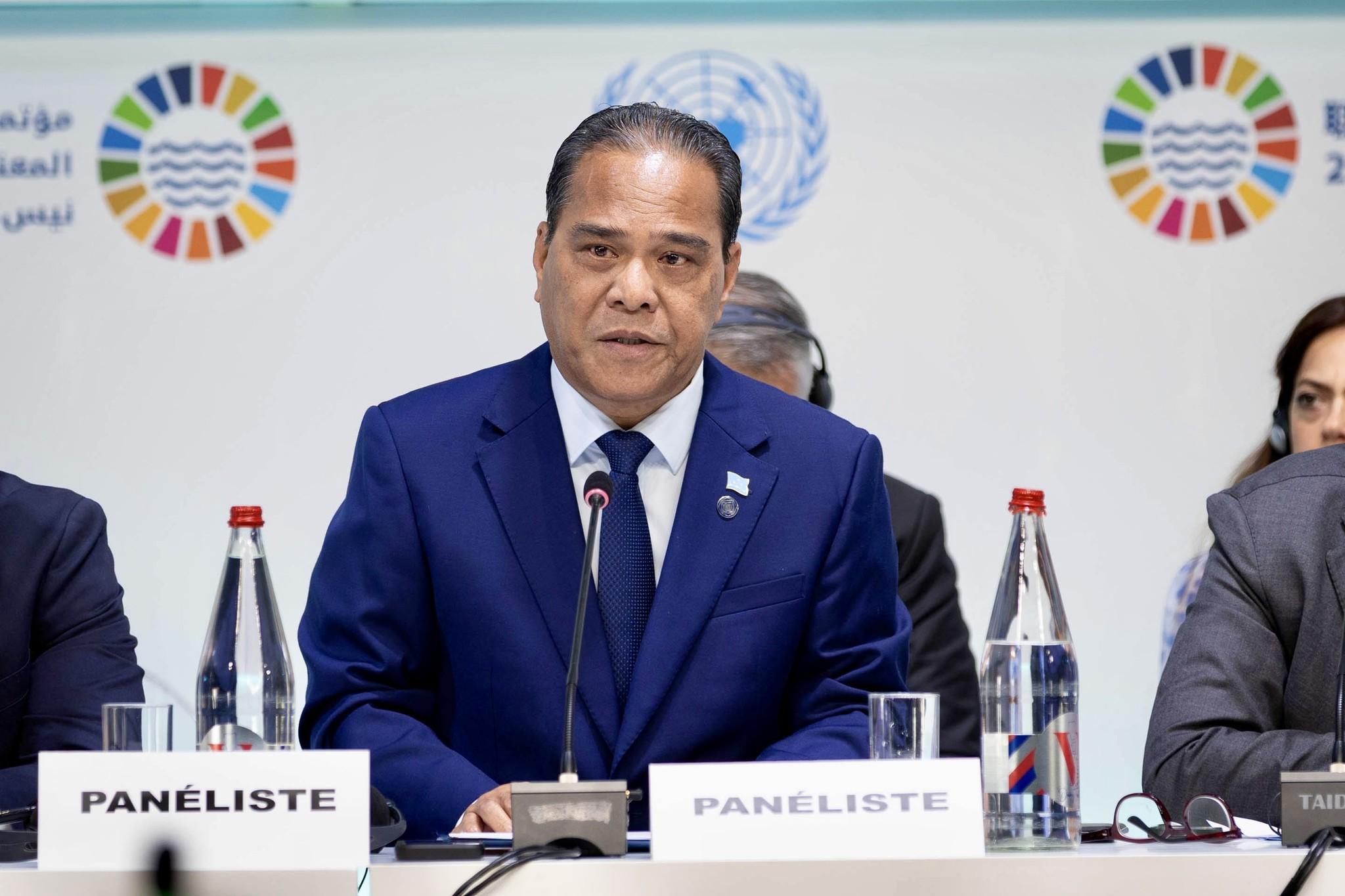
Presidents Simina and Whipps signed a treaty amendment preserving maritime boundaries despite sea-level rise, marking another regional first, according to the office of the FSM president.
The amendments reflect principles established in the United Nations Convention on the Law of the Sea and the 2021 Pacific Islands Forum Leaders Declaration. mbj

















